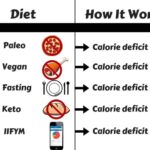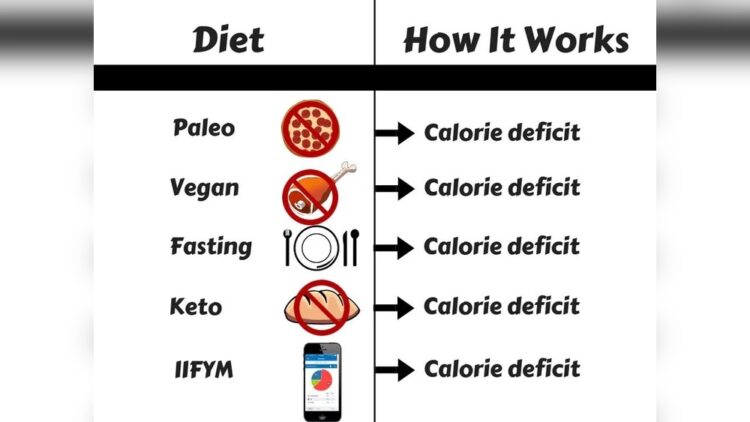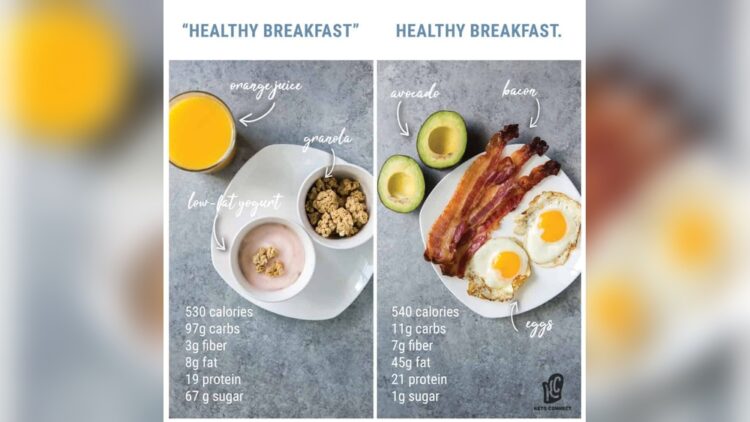Losing weight without ovaries is possible through a combination of healthy eating and regular exercise. Additionally, hormone replacement therapy may be recommended to help manage weight gain caused by hormonal changes.
However, it is important to consult with a healthcare professional for personalized advice and guidance. Taking a proactive approach to a healthy lifestyle can support weight management and overall well-being after the removal of ovaries.
Understanding Weight Loss
Weight loss can be achieved even without ovaries through a combination of healthy eating and regular exercise. Exploring effective strategies for losing weight in the absence of ovaries can help women reach their weight loss goals and improve overall health.
When it comes to weight loss, it’s important to have a clear understanding of the underlying factors that contribute to shedding those extra pounds. By comprehending how weight loss works, you can make informed decisions about your health and achieve your desired results. In this article, we’ll delve into two crucial aspects of weight loss – metabolism and caloric deficit – and how they impact your weight loss journey.
Metabolism And Weight Loss
Your metabolism plays a pivotal role in weight loss. Simply put, it refers to the processes your body uses to convert food into energy. Understanding how your metabolism functions is crucial as it affects the rate at which you burn calories.
The two primary components of your metabolism are:
- Basal Metabolic Rate (BMR): This is the number of calories your body burns at rest to maintain essential bodily functions, such as breathing and digestion. Your BMR is influenced by various factors, including age, gender, body composition, and genetics.
- Physical Activity: This encompasses the calories burned through exercise, daily activities, and general movement throughout the day. By increasing your physical activity, you can stimulate your metabolism and enhance weight loss.
Caloric Deficit And Weight Loss
Creating a caloric deficit is paramount when aiming for weight loss. Essentially, it involves consuming fewer calories than your body needs to maintain its current weight. By consistently achieving a caloric deficit, you force your body to utilize stored energy (fat) to meet its energy demands, leading to weight loss.
To determine the ideal caloric deficit for weight loss, it’s important to consider the following:
- Daily Energy Expenditure: Calculating your total daily energy expenditure (TDEE) can help establish the number of calories you need to maintain your current weight. From there, you can create a caloric deficit by reducing your daily calorie intake.
- Sustainable Deficit: While it may be tempting to drastically reduce your calorie intake, it’s crucial to strike a balance and create a sustainable deficit. Rapid weight loss can have adverse effects on your overall health and even hinder long-term success.
- Quality Nutrition: Prioritize nutrient-dense foods while maintaining a caloric deficit. By ensuring your body receives the necessary vitamins, minerals, and macronutrients, you support overall health and optimize weight loss.
Remember, weight loss without ovaries may require individualized considerations, so it’s advisable to consult with a healthcare professional who can provide personalized guidance.
Effects Of Ovary Removal On Weight
Losing weight without ovaries can have effects on your body. Ovary removal may cause hormonal changes, which can impact metabolism and result in weight gain. However, with proper diet and exercise, it is still possible to maintain a healthy weight.
Losing weight can be challenging, especially for women who have undergone ovary removal surgery. When the ovaries are removed, the body experiences significant hormonal changes that can affect weight management. These hormonal changes primarily involve a decrease in estrogen levels, which can lead to weight gain and difficulty in losing excess pounds.
Estrogen, a hormone produced by the ovaries, plays a crucial role in regulating appetite, metabolism, and fat distribution. Without ovaries, estrogen levels decline, which can disrupt the body’s natural balance. The decrease in estrogen can lead to an increase in appetite and cravings for high-calorie foods, making it harder to maintain a healthy weight.
In addition to hormonal changes, ovary removal can also have metabolic effects that impact weight. The ovaries contribute to the production of certain hormones, such as progesterone, that help regulate metabolism. Without these hormones, the body’s metabolic rate may decrease, resulting in a slower calorie-burning process.
Moreover, ovary removal can lead to a decrease in muscle mass and an increase in fat mass. Since muscles burn more calories than fat, this shift in body composition can further contribute to weight gain or difficulty in losing weight. It’s important for women who have undergone ovary removal surgery to focus on maintaining or building muscle through regular exercise and strength training.
It is essential to note that the effects of ovary removal on weight can vary from woman to woman. Some women may experience significant weight gain, while others may not notice any changes at all. However, understanding the potential impact of ovary removal on weight can help women take proactive steps towards weight management and overall well-being.
Tips For Weight Loss Without Ovaries
If you’ve had your ovaries removed and are struggling with weight management, don’t worry. There are plenty of ways you can achieve weight loss without ovaries. By following a balanced diet and practicing portion control, as well as incorporating regular exercise into your routine, you can achieve your weight loss goals and maintain a healthy lifestyle.
Balanced Diet And Portion Control
A balanced diet plays a crucial role in weight management, especially when you don’t have ovaries. It’s important to focus on consuming a variety of nutrient-rich foods and monitoring portion sizes. Here are some tips to help you:
- Eat a variety of fruits and vegetables to ensure you receive essential vitamins, minerals, and fiber.
- Incorporate lean proteins, such as chicken, fish, tofu, or beans, into your meals to support muscle growth and repair.
- Choose whole grains, like brown rice or quinoa, over refined grains for a more satisfying and longer-lasting feeling of fullness.
- Include healthy fats, such as avocados, nuts, and seeds, in moderation to support brain function and promote satiety.
- Avoid sugary drinks and opt for water or unsweetened beverages instead.
- Practice portion control by using smaller plates, measuring utensils, or visual cues to help prevent overeating.
- Listen to your body’s hunger and fullness cues rather than eating out of habit or for emotional reasons.
Regular Exercise Routine
Regular exercise is essential for maintaining a healthy weight, especially when you no longer have ovaries. It helps boost metabolism, burn calories, improve cardiovascular health, and increase strength. Here are some tips to incorporate exercise into your routine:
- Choose activities you enjoy, such as walking, swimming, cycling, or dancing, to make exercising more fun and sustainable.
- Start with shorter sessions and gradually increase the duration and intensity of your workouts to avoid overexertion.
- Include both cardiovascular exercises, like jogging or high-intensity interval training (HIIT), and strength training exercises, like weightlifting or bodyweight exercises, to maximize calorie burn and build muscle.
- Find an exercise buddy or join a fitness class to stay motivated and accountable.
- Take breaks when needed and listen to your body to prevent injuries.
By following these tips for weight loss without ovaries, you can make significant progress towards your goals. Remember to consult with your healthcare provider before starting any weight loss program or making significant changes to your diet or exercise routine. With dedication and consistency, you can achieve a healthy weight and maintain your overall well-being.
Managing Hormonal Changes
Managing hormonal changes and losing weight without ovaries can be challenging, but with the right approach, it is achievable. Balancing hormones through healthy lifestyle choices, such as regular exercise and a balanced diet, can help to maintain a healthy weight even without ovaries.
Seeking professional advice and support from healthcare providers can also be beneficial in managing hormonal changes and weight loss.
Managing Hormonal Changes When it comes to losing weight without ovaries, one of the key challenges women face is managing hormonal changes. Since the ovaries play a crucial role in hormone production, their removal can lead to imbalances that can make weight loss more difficult. However, by focusing on natural hormone replacement therapy and lifestyle changes, it is possible to navigate these changes and achieve weight loss goals without ovaries. Natural Hormone Replacement Therapy Natural hormone replacement therapy (NHRT) can be a game-changer when it comes to managing hormonal changes without ovaries. NHRT involves using hormones that are chemically identical to the ones produced by the body to restore balance. It works by replenishing the hormones that are diminished or absent due to the removal of the ovaries. NHRT can help alleviate symptoms such as hot flashes, mood swings, and weight gain that often accompany hormonal imbalances. Lifestyle Changes Making lifestyle changes is another crucial aspect of managing hormonal changes without ovaries. By implementing these changes, women can optimize their hormonal balance and support their weight loss efforts. Here are some key lifestyle changes to consider: 1. Exercise regularly: Engaging in physical activity regularly can help boost metabolism, burn calories, and improve overall hormonal balance. Aim for at least 30 minutes of moderate-intensity exercise most days of the week. 2. Eat a balanced diet: Focus on consuming a variety of nutrient-dense foods, including fruits, vegetables, lean proteins, and whole grains. Limiting processed foods, sugar, and alcohol can also support hormonal balance and weight loss. 3. Manage stress: Chronic stress can impact hormonal balance and hinder weight loss efforts. Implement stress-reducing activities such as meditation, deep breathing exercises, yoga, or engaging in hobbies that bring joy. 4. Adequate sleep: Prioritize getting seven to eight hours of quality sleep each night. Sufficient sleep is crucial for hormonal regulation and overall well-being. 5. Stay hydrated: Drinking enough water is important for hormone production and metabolism. Aim for at least eight glasses of water per day. By incorporating these lifestyle changes, women can effectively manage hormonal changes, promote weight loss, and enhance overall well-being. In conclusion, losing weight without ovaries can be challenging due to hormonal changes. However, by focusing on natural hormone replacement therapy and making the right lifestyle changes, women can navigate these changes and achieve their weight loss goals without ovaries.Support And Motivation
Losing weight without ovaries can seem like a daunting task, but with the right support and motivation, it can be achievable. Building a support network and setting realistic goals are two key factors that can help you stay on track and reach your weight loss goals.
Building A Support Network
Having a strong support network plays a crucial role in losing weight without ovaries. Surrounding yourself with people who are supportive and understanding can provide the encouragement and motivation you need to stay on track. Here are some ways to build a support network:
- Join a weight loss group or community where you can connect with others who are going through a similar journey.
- Share your goals and progress with friends and family who can provide you with the emotional support you need.
- Consider working with a nutritionist or a personal trainer who can provide professional guidance and support.
- Utilize online resources such as forums and social media groups where you can find like-minded individuals who can offer advice and encouragement.
Setting Realistic Goals
It’s important to set realistic and achievable goals when losing weight without ovaries. Setting unrealistic goals can lead to frustration and disappointment, making it difficult to stay motivated. Here are some tips for setting realistic goals:
- Start small and focus on gradual progress rather than aiming for drastic weight loss.
- Set specific goals that are measurable, such as losing a certain number of pounds per week or fitting into a specific clothing size.
- Break down your overall weight loss goal into smaller milestones to keep yourself motivated along the way.
- Celebrate your achievements, no matter how small, to keep yourself motivated and focused.
- Adjust your goals as needed to ensure they remain realistic and achievable.
By building a strong support network and setting realistic goals, you can stay motivated and on track to achieve your weight loss goals, even without ovaries. Remember, it’s important to listen to your body and consult with a healthcare professional before starting any weight loss journey.
Frequently Asked Questions On Losing Weight Without Ovaries
How Does Ovary Removal Affect Weight Loss?
Losing weight without ovaries can be challenging as the hormonal changes may affect metabolism and appetite regulation.
Is It Harder To Lose Weight After Ovary Removal?
Weight loss after ovary removal can be more difficult due to hormonal changes, but proper diet and exercise can still yield positive results.
What Are The Best Strategies For Weight Loss Without Ovaries?
To lose weight without ovaries, focus on a balanced diet, regular physical activity, strength training, and hormone replacement therapy if necessary.
Conclusion
Finally, losing weight without ovaries is completely possible and achievable. By making small lifestyle changes and adopting healthy habits, such as regular exercise and a balanced diet, you can effectively manage your weight. Remember to consult with your healthcare provider for personalized advice and guidance.
With determination and persistence, you can overcome this challenge and achieve your weight loss goals.
{ “@context”: “https://schema.org”, “@type”: “FAQPage”, “mainEntity”: [ { “@type”: “Question”, “name”: “How does ovary removal affect weight loss?”, “acceptedAnswer”: { “@type”: “Answer”, “text”: “Losing weight without ovaries can be challenging as the hormonal changes may affect metabolism and appetite regulation.” } } , { “@type”: “Question”, “name”: “Is it harder to lose weight after ovary removal?”, “acceptedAnswer”: { “@type”: “Answer”, “text”: “Weight loss after ovary removal can be more difficult due to hormonal changes, but proper diet and exercise can still yield positive results.” } } , { “@type”: “Question”, “name”: “What are the best strategies for weight loss without ovaries?”, “acceptedAnswer”: { “@type”: “Answer”, “text”: “To lose weight without ovaries, focus on a balanced diet, regular physical activity, strength training, and hormone replacement therapy if necessary.” } } ] }









Leave a Reply